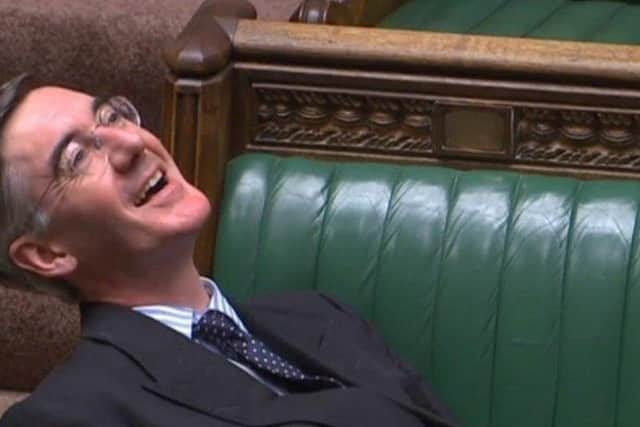English votes for English laws abolished in move labelled 'utter humiliation' by SNP
The UK Government’s motion to remove the English votes for English laws (Evel) procedure in the Commons was approved on Tuesday without the need for a formal vote.
The SNP's Pete Wishart labelled scrapping the procedure an "utter, utter humiliation" for the government, claiming the decision was a win for his party.
Advertisement
Hide AdAdvertisement
Hide AdBut Commons Leader Jacob Rees-Mogg said: “The government believes that the procedure has added complexity and delay to the legislative process.”


Evel was introduced in 2015 as a new stage for laws passing through Parliament.
It allowed English, or English and Welsh, MPs to accept or veto legislation only affecting their constituents before it passed to third reading, its final Commons stage.
It was argued that Evel addressed the so-called “West Lothian Question” – in which English MPs could not vote on matters devolved to other parts of the UK, but Scottish, Welsh and Northern Ireland MPs could vote in Westminster on England-only matters.
But Mr Rees-Mogg said it resulted in “short-lived and poorly attended” debates that have always allowed legislation to proceed.
Labour joined the SNP in welcoming the removal of Evel.
But several English Conservative MPs raised concerns over the move.
Former cabinet minister John Redwood said "England deserved better" and that it was a "sad occasion".
He said it was the "only modest devolution ever offered to England".
Cabinet minister Michael Gove had recently said that only letting English MPs vote on legislation affecting the country has “not served Parliament well”.
Comments
Want to join the conversation? Please or to comment on this article.
